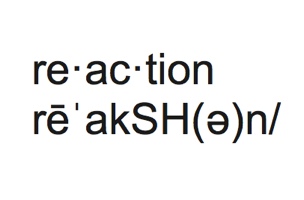I think we all agree that 3D imaging and the interconnected disciplines in which we all work represent a fast-paced market. Whether you are confronting market forces or personnel management, we are required to have quick reflexes and determined reactions in order to achieve success. However, I think many of us (myself included) fall into a pattern of doing nothing, save reacting. You know the feeling, right? Simply going through our days reacting as opposed to creating.
While it’s necessary to spend some time putting out fires when they erupt I think you have to be very careful when you are in a managerial position. I find that others look to management to set the tone or the attitude within a business. While I want my staff to know that they can depend upon me to assist, I do not want them to feel as though they have no responsibility toward the success of a project. I also hate the idea of management constantly addressing the “squeaky wheel” as opposed to creating a vision for a company’s path forward. Seeing that path forward, literally creating your future, is incredibly difficult if you are spending all of your time reacting to your present.
Have you ever taken the time to look at those two words; Creating and Reacting? They are both comprised of the exact same letters. However, one starts with seeing (or literally with a “c”) while the other begins with “re”; a prefix meaning “again” or indicative of repetition. I don’t know about you, but few things make me more upset than realizing someone in our company has repeated a mistake. Mistakes happen, we need to attempt new things in order to progress and as a result they have to be allowed within an organization. However, making the same mistake again usually means one of two things, 1) the person is not paying attention to what they are doing, or 2) there is a lack of communication within the organization. Both are non-billable at best, money-losing in general, and client-losing as worst.
Knowing this and acting upon it are two things that are interconnected but often separated due to a lack of mindfulness. And that’s the real difficulty here; how do you remain mindful while reacting as necessary to the fast pace of change in our industry? I’ve found a few suggestions in my quest for mindfulness that you may also find to be helpful:
1.Reduce the Stimulus for Reaction. The easiest way to do this is to unplug. While that is not always possible you can reduce the seemingly uninterrupted flow of information that seems to demand your immediate attention. I found that turning off the pop-up notification for incoming emails from Outlook made a tremendous difference in my ability to concentrate on the task at hand. Same thing goes for turning my phone to “out of office” or muting for a bit. I’m moving toward responding at predetermined intervals as opposed to the multitasking that I grew up on. It really helps me think a bit deeper about subjects as opposed to skimming along the surface.
2.Be Present. How many times have you been on a phone call or web conference where you caught yourself looking at your cell phone or browsing the internet? If the meeting is not worth being fully “there” for then cancel the meeting. If it is, then be there, fully involved and present in every aspect. I often find that starting a meeting with this in mind can turn a 45 minute slog into 15 minutes of concentrated effort with a better end result for everyone involved.
3.Define the beginning and ending of tasks. Sometimes multitasking is necessary, many time it is task bleed. You can’t fully concentrate on a task if you are thinking about the last or next task at the same time. You can’t be in the moment if you do not know what is happening in that moment! Due to our internal project management system I’ve had to start not only defining tasks to team member but I have to provide them with the information needed to be successful at that task. Information such as, “What is the budget for this task?”, “When am I expected to have it completed?” It suddenly dawned on me that I never provided that type of information to myself. I always took a, “Do it until it’s done” approach. Defining my own tasks has really helped me be in the moment and successfully transition to the next.
4.Savor the Moment. We all look back at past projects with fondness. Even if they were train wrecks at the time, we find some level of humor (black as it may be…). I don’t think that there is any need to wait. Just consider for a moment all of the mindshare that you typically waste on the negative aspects (both real and potential) of any situation in real time. Often, the difference between being the victim of some screw-up, or being presented with an opportunity to shine is between your own ears.





.jpg.small.400x400.jpg)
